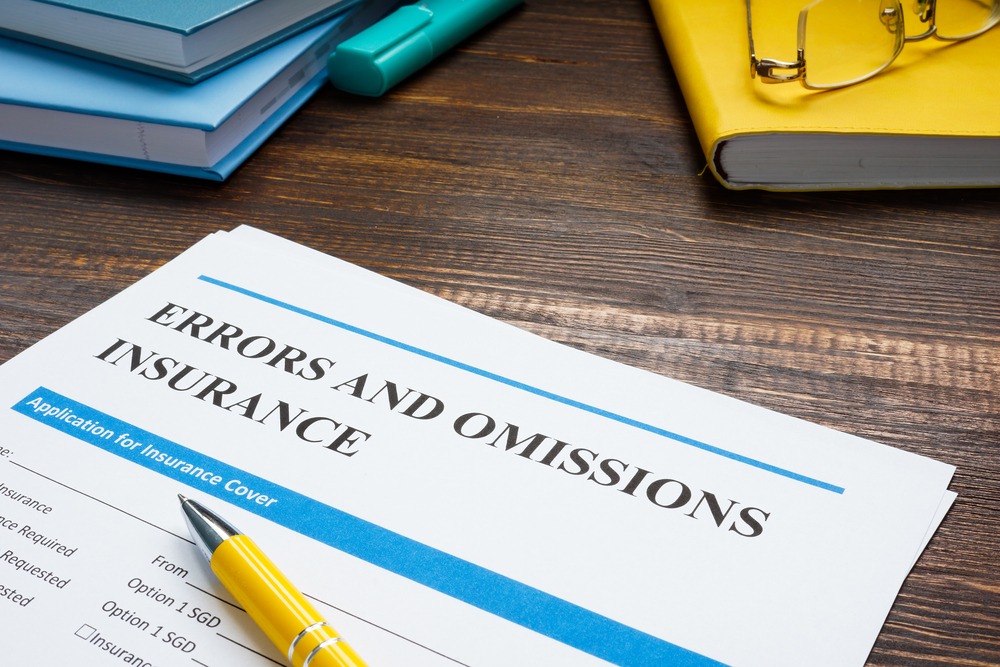As a business owner, you understand the importance of protecting your company from potential risks. One way to do this is by carrying errors and omissions (E&O) insurance.
In this guide, we’ll discuss what this type of insurance is, why you need it, and when you should get coverage for your business.
What Is E&O Insurance?
Also known as professional liability insurance, E & O insurance protects businesses and professionals from claims alleging that they failed to provide the expected level of service. This type of insurance can help cover the cost of defending against these claims, as well as any damages that may be awarded if the case goes to court.
Errors and omissions insurance is important for any business or professional that provides advice or services to clients. This includes businesses in the fields of accounting, architecture, consulting, engineering, insurance, real estate, and more. Even if you are confident in your abilities and have never made a mistake, it only takes one unhappy customer to make a claim against you.
What Does It Cover?
Errors and omissions insurance can help protect you from a variety of claims, including:
Court Costs: If you’re sued, your E&O policy can help pay for your legal fees.
Settlements: If you’re found liable, your E&O policy can help cover the costs of settling the claim.
Judgments: Your E&O policy can help cover the costs of any judgments that are awarded against you in the event that your business is found liable.
Attorney Fees: The cost of defending against a claim can be high, even if it ultimately proves to be groundless. Errors and omissions insurance can help you cover these costs so that you don’t have to worry about them financially.
Errors and omissions insurance also typically covers any damages that may be awarded if you are found liable for failing to provide the expected level of service. This coverage can help protect your personal assets in the event of a lawsuit.
What Does It Not Cover?
Errors and omissions insurance doesn’t cover everything, however. Here are a few things that are typically not covered by an E&O policy:
- Criminal acts
- Fraud
- Intentional acts
- Product claims
- Breach of contract
- Bodily injury
- Property damage
- Theft
- Libel
- Slander
- Discrimination/harassment
So while errors and omissions insurance does provide a broad range of protection for your business, it’s important to be aware of what is and isn’t covered. This will help you determine if errors and omissions insurance is right for your business, and if so, what kind of coverage you need.
How Much Does It Cost?
The cost of errors and omissions insurance varies depending on the type of business, the size of the business, the location of the business, and other factors. Generally speaking, businesses in higher-risk industries will pay more for errors and omissions insurance than those in lower-risk industries.
Businesses can get a quote for errors and omissions insurance from most commercial insurers. It’s important to compare quotes from multiple insurers to make sure you’re getting the best rate.
When Should You Get Coverage?
You should get errors and omissions insurance as soon as you start providing advice or services to clients. This type of insurance is important for businesses in any industry, but it’s especially important for businesses in industries that are known to be high-risk, such as accounting and consulting.
Errors and omissions insurance can help protect your business from claims alleging that you failed to provide the expected level of service. This type of insurance can help cover the cost of defending against these claims, as well as any damages that may be awarded if the case goes to court.
If you are providing advice or services to clients, errors and omissions insurance should be a priority for your business.
When shopping for errors and omissions insurance, it’s important to compare quotes from multiple insurers to make sure you’re getting the best rate. You should also consider the coverage limits and deductible options that are available.
Businesses and Industries That Need E&O Insurance
Errors and omissions insurance is vital for any business that provides professional services and advice to clients. That includes businesses in a wide range of industries, such as:
- Accounting
- Architecture
- Consulting
- Financial planning
- Insurance
- Legal services
- Marketing and advertising
- Real estate
- Technology
Each of these industries has its own unique E&O risks. For example, accountants could be held liable if they make a mistake in their clients’ tax returns. Architects could be sued if a building they designed collapses. And consultants could be liable if the advice they give leads to their clients’ financial losses.
That’s why it’s so important for businesses in these and other professional industries to have errors and omissions insurance. This type of insurance can protect them from the costs of lawsuits and other claims arising from their professional activities.
Conclusion
If you provide professional services, errors and omissions insurance is essential. It can protect you from the cost of litigation and settlements, as well as the expense of defending yourself in court. Even if you’re confident in your abilities, it’s always better to be safe than sorry.

